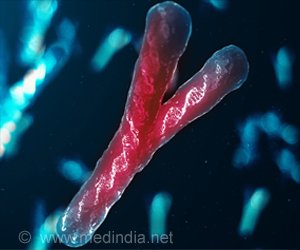Human Genetics Unravels Mysteries of Digestive Disorders

However, recent advancements in sequencing technologies have enabled researchers to unravel the
including those affecting the digestive system.
Completing the Y chromosome sequence provides a comprehensive reference for identifying genetic variations that may contribute to digestive diseases.
Advertisement
This information is crucial for understanding the “missing heritability” problem, where the proportion of disease risk attributable to known genetic factors falls short of what is expected based on heritability estimates.
Y Chromosome Transforms Digestive Disease Research
With their ability to generate long, continuous DNA reads, third-generation sequencing technologies play a pivotal role in deciphering the complex genomic landscapes of digestive diseases.
These technologies enable the detection of structural variations, such as copy number variations and inversions, which were previously inaccessible using older sequencing methods.
These structural variations may play a significant role in disease susceptibility and progression.
The combined power of complete Y chromosome sequencing and third-generation sequencing technologies holds immense promise for advancing digestive disease research.
By identifying novel genetic variants and elucidating their functional roles, researchers can better understand the mechanisms underlying digestive disorders and develop more targeted and effective therapies.
In addition to unraveling the genetic basis of digestive diseases, completing the Y chromosome sequence also opens up new opportunities for investigating sex-specific genetic effects.
Sex differences in disease susceptibility and progression are well-documented in many digestive disorders, yet the underlying genetic mechanisms remain largely unknown.
With its unique genetic content and expression patterns, the Y chromosome may play a crucial role in these sex disparities.
The future of digestive disease research is undoubtedly bright with the advent of complete Y chromosome sequencing and third-generation sequencing technologies.
These groundbreaking advancements hold the potential to transform our understanding of digestive disorders, leading to the development of more personalized and effective treatment strategies that improve patient outcomes.
Reference :
- New horizons of human genetics in digestive diseases
– (https://egastroenterology.bmj.com/content/1/2/e100029)
Source: Eurekalert
Source link
#Human #Genetics #Unravels #Mysteries #Digestive #Disorders



